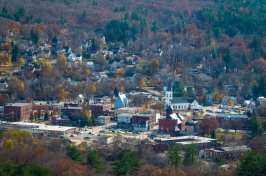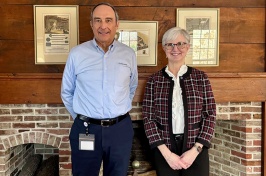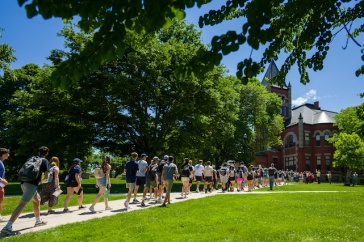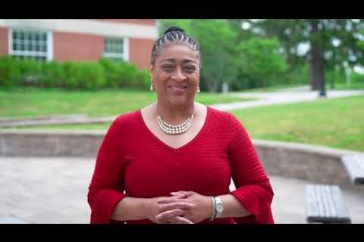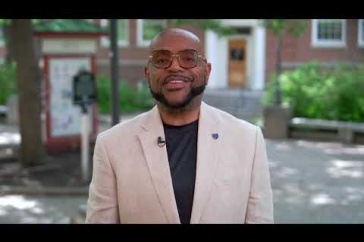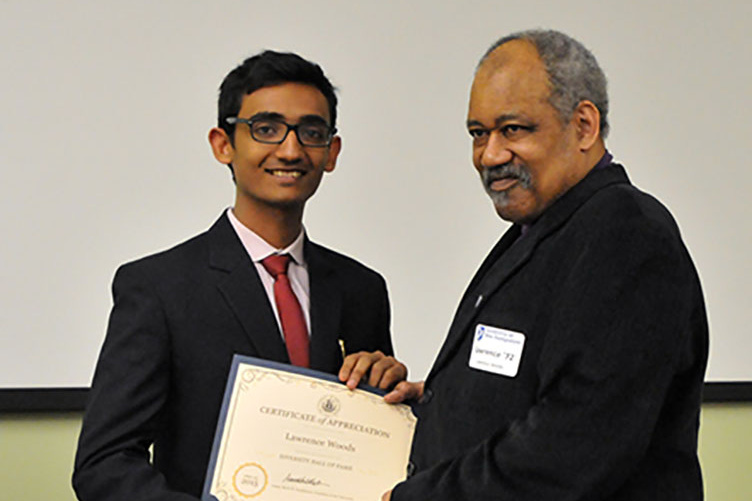
UNH degree: Full-time student 1968- 1972, complete final nine credits in 1975. In 1975, earned a bachelor of arts degree with a major in History and a minor in sociology. In 1979, earned a master's of education in secondary education, with a specialty in social studies.
Currently lives in: Morristown, N.J.
What are your proudest achievements since graduating from UNH?
I graduated third of 42 candidates as first black graduate of N.H. State Police Training Academy in 1973; serving as first black UNH/NH police officer, 1973-1975. From 1975-1977, I was the live-in supervisor of Sawyer dormitory (perhaps the first black). I managed to decrease in property damage by over 50 percent. Two years after that I was in the U.S. Teacher Corps through a UNH partnership. Published twice in their national literature. Designed, developed and coordinated community and area lectures and workshops in diversity and multi-culturalism. From 1979 to 1982, I was an education specialist at Old Dominion University in Norfolk, Va., on a team analyzing teaching and educational environments to make recommendations and positive changes in Norfolk secondary schools. In 1984, I was an admissions counselor and minority recruiter for Penn State University's Admissions Office. At students' request, I designed and taught an African-American studies course In 1999, I was a diversity instructor for U.S. Job Corps in Edison, N.J. I designed and taught diversity curriculum ot enable students ages 16 to 24 to adjust to entering a diverse workforce. From 2000 to 2012, I was a middle school social studies teacher in the East Orange (N.J.) school district. I was administrator's choice for a model social studies classroom, students' choice for three years as the teacher who had the most positive impact on their year, and teachers' choice for three years as the union representative. I am currently a board member and co-director of exhibitions of Art in the Atrium, Inc., a nonprofit organization that has produced an annual six-week exhibit featuring 25 to 30 established and emerging African-American artists for the past 23 years. In 1991, I was certified as a personal fitness trainer, and in 2009 was received pro-level tennis certification.
What organizations were you involved with during your UNH years?
I was a member of the Black Student Union and attended meetings/activities at the Umoja house. For four years, I was an athlete on the football and wrestling teams.
What were some of your accomplishments as a student here at UNH, and as a pioneering black student at UNH?
I was the first UNH wrestler to win a New England wrestling championship, as a freshman wrestling only freshmen; I was the first black wrestler to win the New England crown. As a junior, I was the first black UNH wrestler to win the New England qualifying tournament for the national championships in 1971. As a senior, I was the first black UNH wrestling team co-captain.
What is one of your favorite UNH memories?
A favorite memory is of my conversation with Professor Long. He taught a history class in an auditorium, holding as least 250 students. Professor Long signaled to me to see him after class, making me a little apprehensive that something was wrong. To my surprise, he cheerfully said, with a smile, how disappointed he was that I had missed his last two classes. These lectures were on African-American history and when he prepared them, he was very interested in what my reaction would be and wanted to discuss them with me. He understood, without reservation, that I was away on a wrestling trip. I will never forget the way he treated me with respect. He showed me that my opinion mattered and that I was not invisible.
What is one of your very most unique UNH memories or experiences?
When I was a police officer, we got a call that a streaker was at the New England Center. When Sgt. Luke and I arrived, the streaker was gone. Five minutes after we left the area, we got a call that she was back at the restaurant, nude, except for glasses and a long nose. She walked from table to table, shaking hands with the nuns who were having a luncheon at that time. When we pulled up to the front door, the young lady walked out, giving us a big smile. Sgt. Luke told me to "grab her." I took hold of her wrist and told her she was under arrest. She laughed and thought I was kidding. After getting her into the back seat and putting a blanket on her, she confessed that her friends had pressured her to do this before she went home for good; this was her last fling before graduation — I hope the nuns have recovered.
Who were your role models and/or mentors while here at UNH, and how did they impact your life?
Professor Long represented the type of history teacher I aspired to be. He displayed a joy for teaching, was always well organized, and each lecture was tight and clear. He was personable and spoke with you, not to you, even though there were hundreds in the room. Also Dave Cross; I had been playing tennis for less than a year when I met David and he agreed to hit with me. Forty years later, he is still the best person that I have ever hit with. Exhausted from work in 1975, I took his class in order to graduate and he kept me awake and motivated me to the finish line like a great educator and friend does. Dr. Pine, in UNH's education department, saw my potential and got me to enroll in the best program ever created to train teachers to deal with students who have a variety of challenges: U.S. Teacher Corps. He helped me over each bump and allowed me to use my skills way beyond what was expected or required.
What advice would you give to current UNH students of color, or any students, based on what you learned while at UNH, and what you've learned from life after college?
It is an opportunity to get a great education. There are a lot of good teachers who notice students who are serious about their education. If you engage with them, ask questions to help you connect what you already know with what you are learning. Friends made while UNH, are often friends for a lifetime. Remember that UNH is not just buildings and professors but mainly UNH is you. You are UNH's future ambassadors.
-
Written By:
Staff writer | Communications and Public Affairs





























